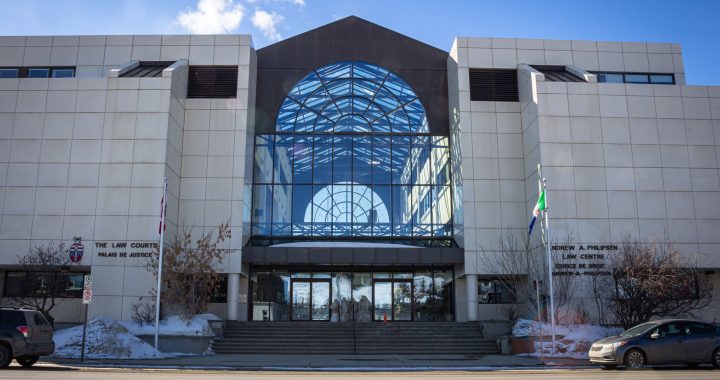By Cullen Crozier
APTN Investigates
Up until a few years ago, most of Canada had never heard of the term “Lost Canadian” – referring to the nearly one million people who were being denied their Canadian citizenship mainly due to outdated and discriminatory aspects of Canada’s citizenship law.
And according to citizenship advocate and founder of the Lost Canadians, Don Chapman, there’s a good reason why.
“Governments don’t like correcting past mistakes,” says Chapman from his Vancouver apartment. “They don’t like admitting them, they don’t like apologizing for them. They always look at a cost basis they don’t often look and say let’s just do the right thing.”
Before 2009, there were a number of ways that individuals could — and often did — lose their Canadian citizenship. Including war brides, children of war brides, border-babies who were born in the U.S. and never properly registered in Canada, children born to Canadian servicemen outside of Canada, second-generation children born abroad and the list goes on and on.
Many people lost their citizenship due to racial discrimination, sexism and because of the federal government’s insistence that Canadian citizenship only began after 1947. In fact most of the current inconsistencies surrounding citizenship today can be traced back to antiquated legislation within the Citizenship Act going back nearly 200 years.
“Word for word in the mid-1800s they stated: married women, minors, lunatic and idiots will be classified under the same disability for the national status,” says Chapman. “Now you think that Canada would have fixed all of these laws but they are still on the books for some people.”
It’s something that Chapman can relate to – he was after all at one point a Lost Canadian himself. Born in Canada to Canadian parents, Chapman lost his Canadian citizenship as a child after his father moved his family to the United States and applied for U.S citizenship. It took him more than 47 years to get his Canadian citizenship back.
Unlike Chapman, many Lost Canadians go through most of their lives unaware that they don’t have Canadian citizenship. In some cases, they only find out when they applied for government pensions, driver’s licenses, passport renewals or health care.
In 2009, Ottawa made amendments to the Citizenship Act in an attempt to address some of the outdated legislation. And for the most part it worked. Bill C-37 granted citizenship to an estimated 750,000 Lost Canadians.
But while the changes managed to help around 95 per cent of the Lost Canadians regain their citizenship, it still left nearly 37,000 individuals out of the loop.
So it’s not surprising that the federal government has announced another round of sweeping amendments to the Citizenship Act through Bill C-24.
If approved, the bill proposes a number of changes to Canada’s citizenship and immigration laws including extending citizenship to many of the country’s remaining Lost Canadians not covered by the 2009 amendments.
“I am proud that our government is now moving to reclaim our remaining Lost Canadians,” said Citizenship and Immigration Minister Chris Alexander during a press conference in February. “And with this and other changes to the Strengthening Canadian Citizenship Act, we are protecting the value of citizenship for the future.”
But according to Chapman, not only will the changes still leave a number of Lost Canadian without citizenship, they will also make it more difficult for new Canadians entering the country to obtain citizenship and give the government more power to strip citizenship altogether.
“This is a double edge sword and I don’t know that I would be voting for this bill if I were a member of parliament,” says Chapman. “We really need to sit down so that they understand what the problems are then write the bill around that and I’d much prefer having a bill that isn’t about taking away somebody’s citizenship at the same time as restoring.”
There is no word yet on when or if the bill will pass but whatever the outcome, Chapman says that he will continue advocating and taking the federal government to task until every Lost Canadian is accounted for.
“I think that they have this programmed idea that it’s all about money.” Says Chapman. “But when you get down to it morals aren’t about money; morals are morals. The right of belonging and being part of this Canadian family should be inherent.”
APTN Investigates tried repeatedly to contact Citizenship and Immigration Minister Chris Alexander to give him a chance to respond to this story. His office’s only reply was that he was not available.











